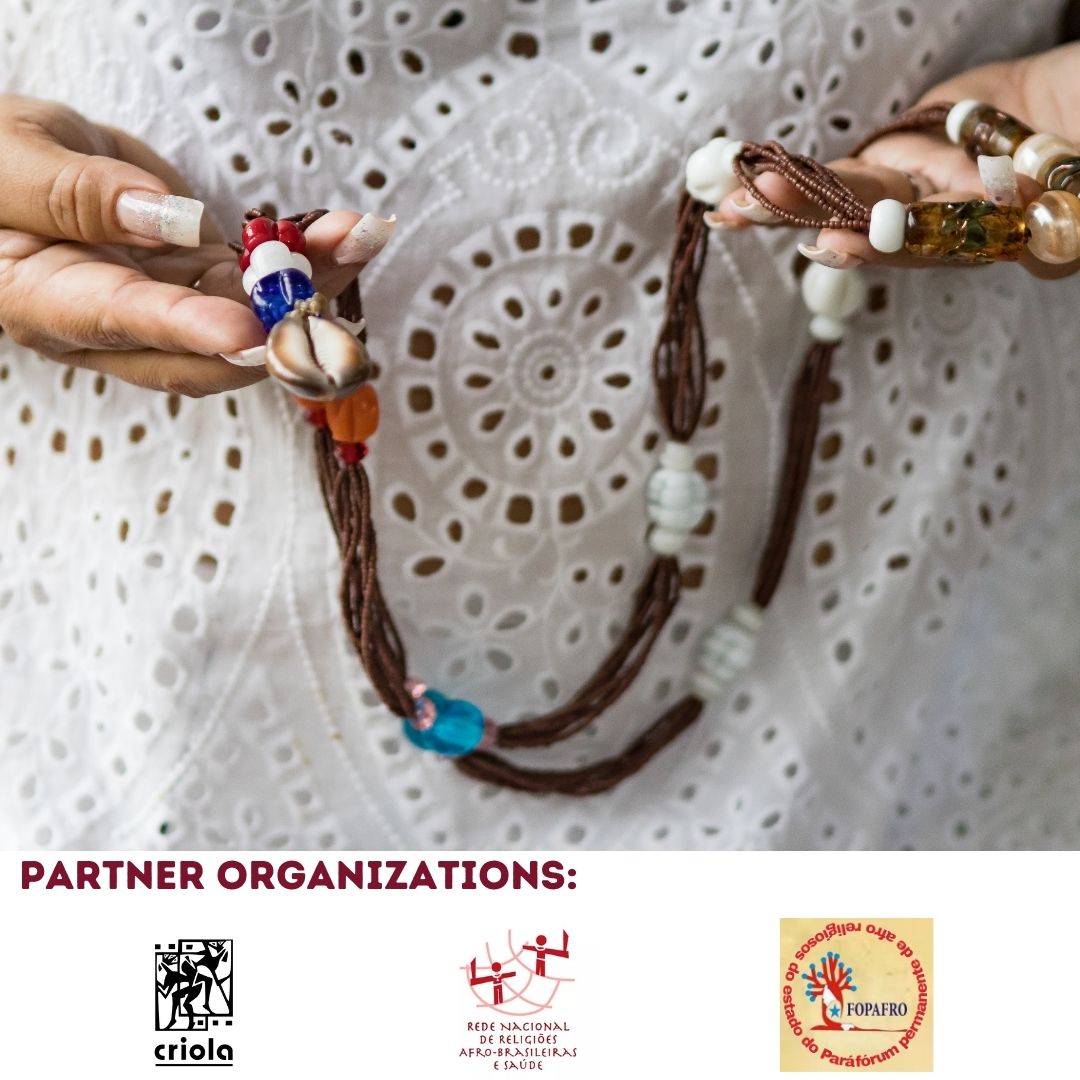Race and Equality launches a project to combat religious racism in Brazil
Brazil, August 18, 2021 – In order to promote religious tolerance and reduce violence and discrimination against practitioners of African-derived religions in Brazil, the International Institute on Race, Equality and […]

Brazil, August 18, 2021 – In order to promote religious tolerance and reduce violence and discrimination against practitioners of African-derived religions in Brazil, the International Institute on Race, Equality and Human Rights (Race and Equality) is set to launch a project to combat religious racism alongside Brazilian civil society organizations. This two-year project aims to empower and strengthen Afro-Brazilian organizations so they can document cases of violence based on religious beliefs. This documentation will be used for international strategic litigation that promotes a culture of respect for religious freedom, as well as to enable the legal support necessary for victims of religious racism.
The organizations that will coordinate the project with Race and Equality include: NGO Criola, RENAFRO (National Network of Afro-Brazilian Religions and Health) and FOPAFRO (Permanent Afro-Religious Forum of the State of Pará). These three entities will be responsible for training terreiros[1] in the states of Bahia, Mato Grosso, Pará, Rio de Janeiro and São Paulo. Among the organizations involved, Race and Equality understands that it is of paramount importance to train religious leaders on national laws that deal with racial discrimination and to document human rights violations. These entities will not only present their documentation to the local, state, and federal authorities, but also to the Inter-American System of Human Rights, the UN, and advocate for Brazil to be held internationally accountable.
Furthermore, the strengthening of community and religious leaders presents itself as a unique opportunity given that, in 2022, Brazil will be reviewed by the United Nations committee that oversees the International Convention for the Elimination of Racial Discrimination (CERD). Therefore, the documentation and visibility of cases of religious racism in the country is beneficial so that civil society can demand and hold the Brazilian government accountable, and pressure them to fulfill their internal obligations based on their international human rights commitments.
Another point to highlight in this project is the media and lawyers who are dedicated to the issue of religious racism in Brazil. Since the media, especially newspapers and TV news reports play a key role in perpetuating negative stereotypes against African-based religions, training journalists aims to break paradigms and demystify current narratives. These paradigms and narratives, in addition to silencing the practitioners of these religions, rely on dogmas of Judeo-Christian religions. In turn, it is urgent to prepare a legal body to respond to the growing denunciations of cases of religious racism and its victims. This project also seeks to expand and promote educational programs that qualify networks of lawyers in the country.
This project’s objective includes the promotion and respect for religious freedom, as well as creating activities that contribute to a paradigm shift at national and international level. For Carlos Quesada, Executive Director of Race and Equality, the legacy of this project is also in its multiplier effect, for the training activities aim to create an informal human rights network to defend religious freedom in Brazil and, thus, the organizations develop autonomy to document, denounce and address human rights violations. In addition, Quesada points out that in the international scene there is a lack of knowledge regarding religious racism in Brazil.
“There is a cultural fallacy that Brazil is a country in which everyone can exercise their religious beliefs freely. However, structural racism also manifests itself in religions from burning terreiros to parents who lose custody of their children by expressing their faith. Thus, the violence manifested by religious intolerance undermines the principles of human rights. We need to make these cases visible internationally and foster awareness at the national level,” contends Quesada.
Race and Equality recognizes that religious racism is a problem that needs to be combated in Brazil with the creation of public policies and implementation of laws that have already been approved. According to data from the Ministry of Women, Family and Human Rights, in 2019, there was an increase of 56% (356 in total) in complaints and assaults for religious intolerance, compared to 211 in 2018 [1]. Most of the victims were followers of the Candomblé and Umbanda religions [2]. In addition, Data Dial 100, a telephone line for reporting violence, shows that between 2015 and 2019, 2,712 complaints of religious violence were made in Brazil, among these communications 57.5% were of African-based religions [3].
Teaming up with Afro-Brazilian organizations, Race and Equality reaffirms its commitment to denounce and combat human rights violations. Religious intolerance violates the right to equality, freedom of belief and expression, as well as fostering actions of violence and a culture of hatred that laregely affects populations vulnerable to structural racism and LGBTIphobia. That being said, throughout this project Race and Equality will denounce cases of negligence, racism and discrimination affecting religious democracy in Brazil.
[1] Terreiro means African-inspired traditional house.
[3] The two well-known Afro-Brazilian religious traditions are Candomblé and Umbanda. Candomblé was formed by enslaved Africans, while Umbanda was created in Brazil at the beginning of the last century. There are notable differences between the two traditions. Candomblé’s chants are performed in languages of African origin, such as Yoruba or Kimbundu. While in Umbanda, they are sung mainly in Portuguese. Another difference is the practice of animal sacrifice. In Candomblé, the practice of animal sacrifice is carried out as a way of circulating the energy that animates everything in the world: axé. More than religions, these traditions reveal the social, cultural and spiritual practices on the African continent.
[4] https://www.gov.br/mdh/pt-br/acesso-a-informacao/ouvidoria/balanco-disque-100

